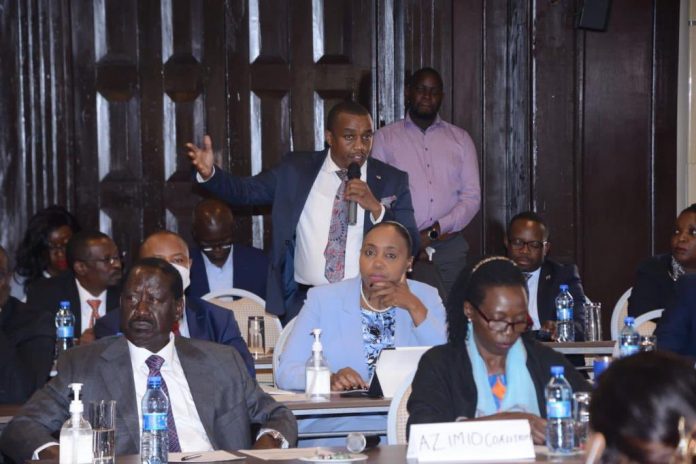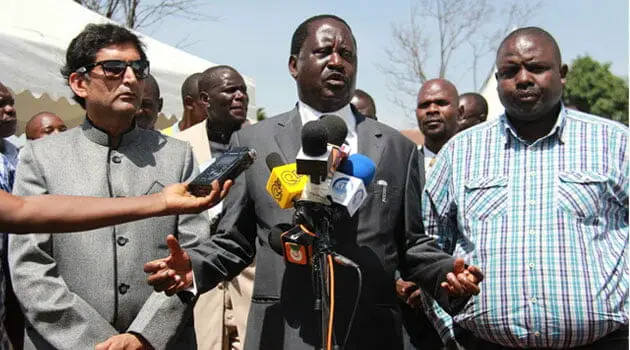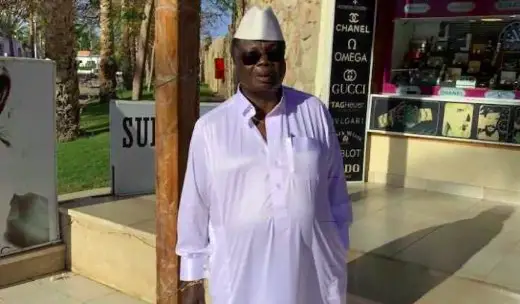East Africa’s foremost cartoonist Gado has left the Nation Media Group. Gado left quietly mid last month shortly after the principal owner of the media house, the Aga Khan, met President Kenyatta at the State House. It was not immediately clear why the Nation let the cartoonist go – and matters were compounded by the fact that even Gado himself does not want to talk about it – but all indications point to the media group bowing to pressure from the Jubilee government.
Gado has told those close to him that he has taken a ‘sabbatical’ but sources indicate that the search for his successor is on. In the meantime, Gathara — a cartoonist, writer and activist — has been drafted to temporarily step into the big shoes of one of Africa’s most respected political cartoonists. Igah, an in-house Nation cartoonist whose work usually appears in the newspaper’s pullouts but occasionally provides the editorial cartoon, is not being considered to permanently take up the role.
Since June 2013 the presidency has been threatening the Nation with sanctions and demanding that the board reins in headstrong editors and columnists in exchange for continued advertising support. The first casualty was Makau Mutua, then a Sunday Nation columnist, who was unceremoniously bundled out of the region’s top selling newspaper. He found refugee at the Sunday Standard, but he appears to have lost his mojo after the move. The column no longer elicits strong responses as was the case when he was at the Sunday Nation. With Gado now out of the way, the spotlight turns to Maina Kiai, George Kegoro and Godwin Murunga, the most avowed Jubilee critics on Nation titles. Jubilee has been very uncomfortable with the Tanzanian-born cartoonist accusing him of belittling and desecrating the presidency.
Uhuru’s displeasure with Gado started shortly after he was indicted by the ICC over the 2007/2008 post-election violence and the cartoonist would depict him as a man running away from his own shadow and silhouetted by the charges of crimes against humanity at The Hague. The cartoonist was known for his caricature of Uhuru and Ruto with a heavy prisoners’ ball and chain — depicting the burden of the ICC cases. The President’s case was withdrawn last December but Ruto’s case is ongoing.
But it is Gado’s dramatic depiction of the deputy president in the Hustler’s Jet scandal in June 2013 that rubbed the Jubilee administration the wrong way, culminating in the government suspending some advertisements to the Nation. In January, the Tanzania government banned The EastAfrican, the same week Gado treated President Jakaya Kikwete to a Hustler’s Jet Moment — being massaged airborne by beauties. The depiction was apparently to capture the scandals that were dogging Kikwete’s government. The cartoon enraged the ruling party CCM stalwarts and it is believed to be the reason the paper was shut. Kikwete is still brooding and the cartoonist is banished from his motherland. Gado has also enraged Rwanda’s Paul Kagame and Uganda’s Yoweri Museveni by telling the bitter truth laughingly.
The straw that broke the camel’s back is said to be the consistent depiction of Ruto in various Nation editorial cartoons as a Sikh complete with a turban following the attempts to grab the Lang’ata Road Primary School land early this year. The public widely perceived that Weston Hotel, which is linked to the deputy president, was behind the purported grabbing but Lands Cabinet Secretary Charity Ngilu (now suspended for alleged corruption over separate matters) named four individuals bearing the surname Singh as the owners of the company that was claiming the land.
Self-effacing, witty and out-rightly irreverent, Gado ranks among the best editorial cartoonists in Africa. But while he enjoyed a rollercoaster ride in the 1990s and 2000s, the current leadership in East Africa is easily prickled to tears – and vengeance.
In the 1990s long before comedians could ridicule or mimic then president Moi, Gado caricatured him so many times that it is said that even Moi himself was tickled by the wizardry of “this small Tanzanian”. Kibaki is said to have had a soft spot for the cartoonist, while opposition leader Raila Odinga takes a hearty laugh whenever he’s targeted.
But it’s the intolerance of the Jubilee leadership that has sent shock waves among Nation editors. The fear is if the company indeed caved in to pressure from State House to edge out Gado, who is next? Already the presidency is livid with the Daily and Sunday Nation’s coverage of the Garissa Massacre. The papers have exposed a cocktail of errors that led to the loss of many lives and dismissed the official narrative that the response was “first class”. While the powers that be are not questioning the veracity of the stories, they are upset that the Nation editor Mutuma Mathiu and his Sunday counterpart Eric Obino are not playing ball and have interpreted this to mean sabotage. Indeed for Jubilee, any dissenting opinion is equated to working with Cord.
On April 8, a senior State House official was so upset with the Page One Comment in the Daily Nation that he vowed to teach the editors a lesson. The man, himself an experienced journalist, praised the Standard for patriotic coverage, and lambasted the Nation for “not reading the signs of the times”. It was not immediately clear what he meant by this, but the cue could be found in the lapdog coverage of contentious national issues by the Standard. A senior editor at the Standard told our writer that CEO Sam Shollei was directly dictating coverage of major events. With retrenchments in the offing and circulation falling to the levels last seen in the mid-1990s, the Standard editors have all but resigned to being Jubilee cheerleaders.
The Nation is at a crossroads. Editorial and commercial leadership has been merged under Tom Mshindi since the retirement of Joe Odindo last year. The delay to appoint an editorial director has upset many journalists. While the money-men want the papers to sing along the Jubilee chorus and guarantee revenues, the journalists are agitating for the separation of editorial leadership from commercial. The NMG management has a lot of faith in Mshindi, but journalists say he has a very negligible influence over the managing editors and what they carry. The matter is complicated by the fact that he is always on the move, flying from one country to another to put out fires in the group’s struggling regional offices. This means he barely has time for matters editorial.
Uhuru and Ruto have on many occasions accused the Nation titles of bias against Jubilee, especially in the coverage of political and financial scandals. Ruto for long refused to speak to NTV and President Uhuru only agreed to an interview with NTV last year on condition that the station would stick to the official narrative. Not surprisingly, then NTV managing editor spent hours with the president only to file the most flattering interview Uhuru would ever get, even on the State broadcaster KBC. But that’s another story altogether. Until June last year when Odindo retired as NMG Editorial Director, Jubilee was adamant that the Nation was favouring the opposition CORD for ethnic reasons and it’s interesting that the charges have continued long after Odindo left. The Standard has been subdued for tactical political and financial reasons, while the Royal Media Services has been worming its way into the Jubilee hearts after backing CORD at the last elections. Ever the astute businessman, SK Macharia is a master player of the system.
The Nation board’s fears of reprisals for the Aga Khan’s business empire are not farfetched. Last month a State House operative and another senior officer are said to have communicated to the Aga Khan, the Mois and SK Macharia to decide whether they were with the government or against it.
Implicit in this message was the threat that the government would withdraw its support for their other investments. With the exception of SK whose billions have come largely from the media, the Mois and the Aga Khan have more lucrative interests in the hospitality, logistics, energy and financial sectors and they cannot afford to antagonize the government. In revenue terms, the media houses are like trophy wives, good for broadcasting authority, but bad for filling the coffers. Though the Nation is still hugely profitable, and recently announced a pre-tax profit of Sh3.8 billion for last year, the Aga Khan reaps more billions from banking, energy and hospitality sectors stress-free. The same can be said of the Mois who keep the Standard titles and KTN for sentimental and political reasons.
This Post first appeared on the Kenyan Editor Blog


















































